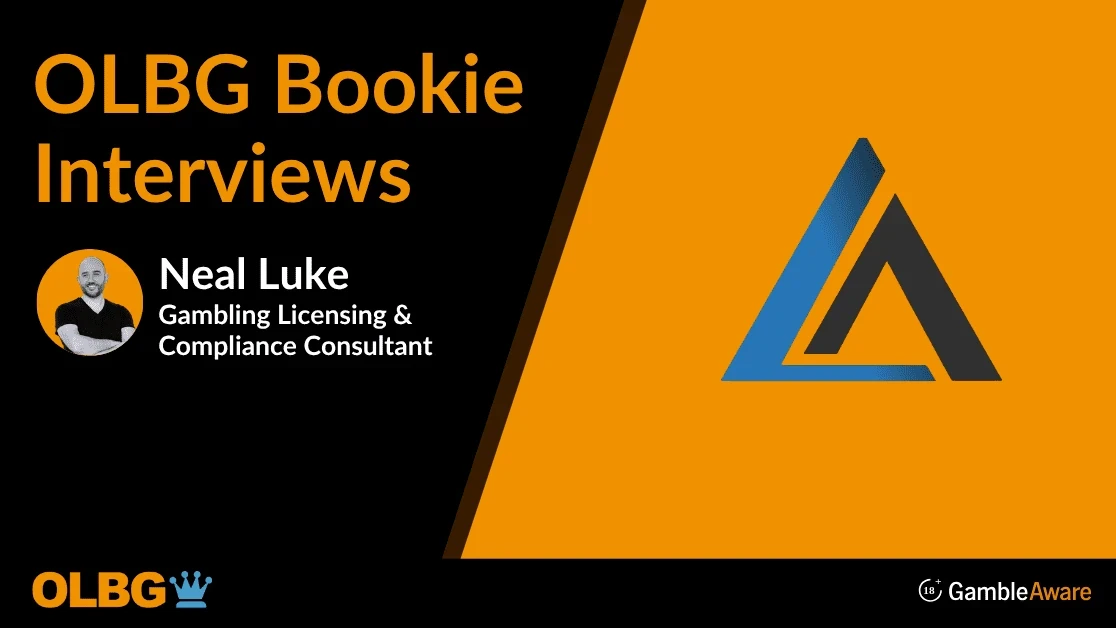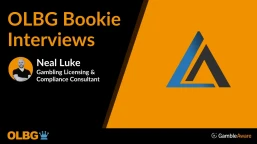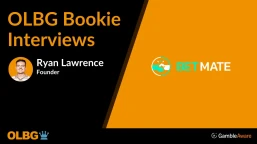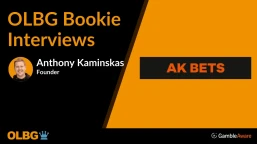
Experienced journalist and editor covering the sports and betting industry. A football, NFL and rugby specialist, he is a FWA member and judge at the Football Content Awards.
With over two decades experience across gambling, Neal Luke heads up a consultancy covering various parts of the industry. We chat with Neal about how they work with operators, the biggest issues within the industry and the prevalence of non-GAMSTOP operators.
OLBG: Can you please explain to our audience what you do?
NL: I'm a Betting and Gaming Compliance Consultant for Luke ARC, a consultancy consisting of five UK Gambling Commission alumni, alongside a wider support team. We have a focus on the UK market covering everything from license applications, all the way through to assessment and regulatory action support.
OLBG: How did you get into that?
NL: Personally, my career started 20 plus years ago with PlayTech’s iPoker network. I had quite an external-facing role in which I often dealt with some of the largest operators in the UK market, corresponding and often visiting sites with a view to streamlining procedures and controls for fraud, AML (Anti-Money Laundering) and collusion. In 2014, when the Gambling Work and Advertising Act came in, I was hired by the UK Gambling Commission as a compliance manager, with a specialist focus on online operators. After several years of carrying out compliance assessments and many other thematic tasks for the regulator I returned to the industry. Following several senior industry roles I set up my consultancy which, as a specialist in the UK market, is very much a market leader. Mostly due to the expertise within the team.
OLBG: How much of what you do is you looking out for issues and approaching operators, as opposed to operators coming to you asking for guidance?
NL: There is, of course, a high demand within the UK market for those with such a detailed understanding of the Gambling Commission's workings, so earlier on that involved some outreach, with many early clients came via industry connections. Over the last few years the vast majority of clients have onboarded organically, being referred from industry contacts and other clients predominantly. Even in an industry as big as ours, simply doing a good job and allowing word of mouth to advertise has a great deal of value.
OLBG: What are the biggest issues facing bookmakers at the moment?
NL: Broadly, I think it is the pace of regulation. Bookmakers are finding it increasingly difficult to keep up with the pace of regulatory change in the UK and balance it with commerciality. On their own, the updates to regulation might not be as significant, but when you combine the early financial vulnerability checks, the maximum stakes on slots and the new marketing restrictions on cross selling and wagering requirements, it is affecting all operators and businesses differently.
Adding to this, over the last year the Commission have very much changed their methodology for compliance assessments. Although our team is seeing a few smaller, more focused assessments, the standard compliance assessments are involving a much more detailed information request, with up to five days taken up for the audit which is of course a very challenging drain on staff resources. Although the regulatory penalties are very much a deterrent for non-compliance, the real challenge comes from the sometimes two-year long back and forth with the Gambling Commission. While of course running the business, many senior staff will have their focus on corresponding with the Commission and answering rather detailed correspondence alongside the normal pressures of the industry. This and reduced long term revenue is often a greater cost than any settlement.
OLBG: And can you see that changing much in the next five years or so?
NL: We’re still anticipating the findings of the financial risk assessment pilot scheme. Once these thresholds, along with the expectations, are set, this will be a further point at which operators will need to assess many customers. Currently intending to be frictionless in most instances, these will of course be the highest spending customers. So those who are blocked will impact revenue, as, in many cases, it should.
Changes to regulation have been quite steady since the white paper, as expected. What I also expect to change is the Gambling Commission's approach to compliance and enforcement steadily. As I mentioned, the Commission had changed the formatting of an assessment and this is quite well known, however, many of the issues that are appearing in assessments will of course inform future legislative changes. I would expect an increase in statements, emerging risk bulletins and similar over the next few years, but I feel a review of the actual act itself might not be necessary for a while. As we have seen, secondary legislation can be changed in a much more timely and effective manner where it is possible.
OLBG: What would be some of the common errors that operators make?
NL: I often see policies and procedures gradually stray away from the Commission guidance as they are developed. In particular the customer interaction guidance can be quite prescriptive in some areas, especially where it lays out the indicators operators should be using. Two problems I often see is where operators review the guidance and generally aim to cover the main points without doing a true side by side. The other common issue is operators having an aggregate score for safer gambling which dictates the level of interaction a customer receives, however an individual indicator of harm must be acted upon. So, for example, if a customer has spent many hours on site playing, it does not matter if they have not lost much money, that spike in what is a potentially problematic behaviour must trigger an interaction. It's also important to remember that interactions at the medium level and higher do require a phone call, and certainly not a simple email that does not require a response. These are issues which are almost certain to result in a compliance assessment being escalated to enforcement.
OLBG: Are there instances where operators have ignored advice that you've provided and subsequently been fined/punished as a result? (You don't have to name or cite specific examples if you don't want to).
NL: Hahaha. Sorry, I can’t touch that question with a 10 foot barge pole.
OLBG: That’s fair. Are there specific things (apart from the obvious) that affiliates should look out for when partnering with operators?
NL: As we all know, the licence holder is responsible for the failings of any third party in regards to compliance, but operators must have contractual clauses allowing them to exit an agreement should the affiliate cause non-compliance. In compliance assessments I have seen the Commission getting sharper and sharper at finding issues related to an operator’s affiliates. The compliance managers are also very aware of methods of affiliate monitoring that operators should be considering.
For affiliates, the best advice is to not get over adventurous in the marketing itself. Although many affiliate websites have unique selling points to attract customers, in regards to the actual advertisements you should make sure that the imagery, significant terms and conditions, link to full terms and placement of the advertisements is done as communicated by the operator and in a responsible manner.
OLBG: A big issue for affiliates like ourselves is non-GAMSTOP operators appearing in organic SERPs – do you think it's an issue for Google to address, or the responsibility of the Gambling Commission and other parties in our own industry?
NL: This is of course a growing issue, and another common issue I'm seeing lately is cloned websites mimicking Gambling Commission-licensed operator’s websites. Although these are getting closed down steadily, I believe the Commission needs even stronger powers, especially regarding payment providers who facilitate these websites and internet service providers.
Quick communications with search engines and internet service providers is vital in closing down these websites, but the best place to hit them is of course their wallet. A quicker and effective way of catching the illegally obtained deposits would be an ideal solution.



